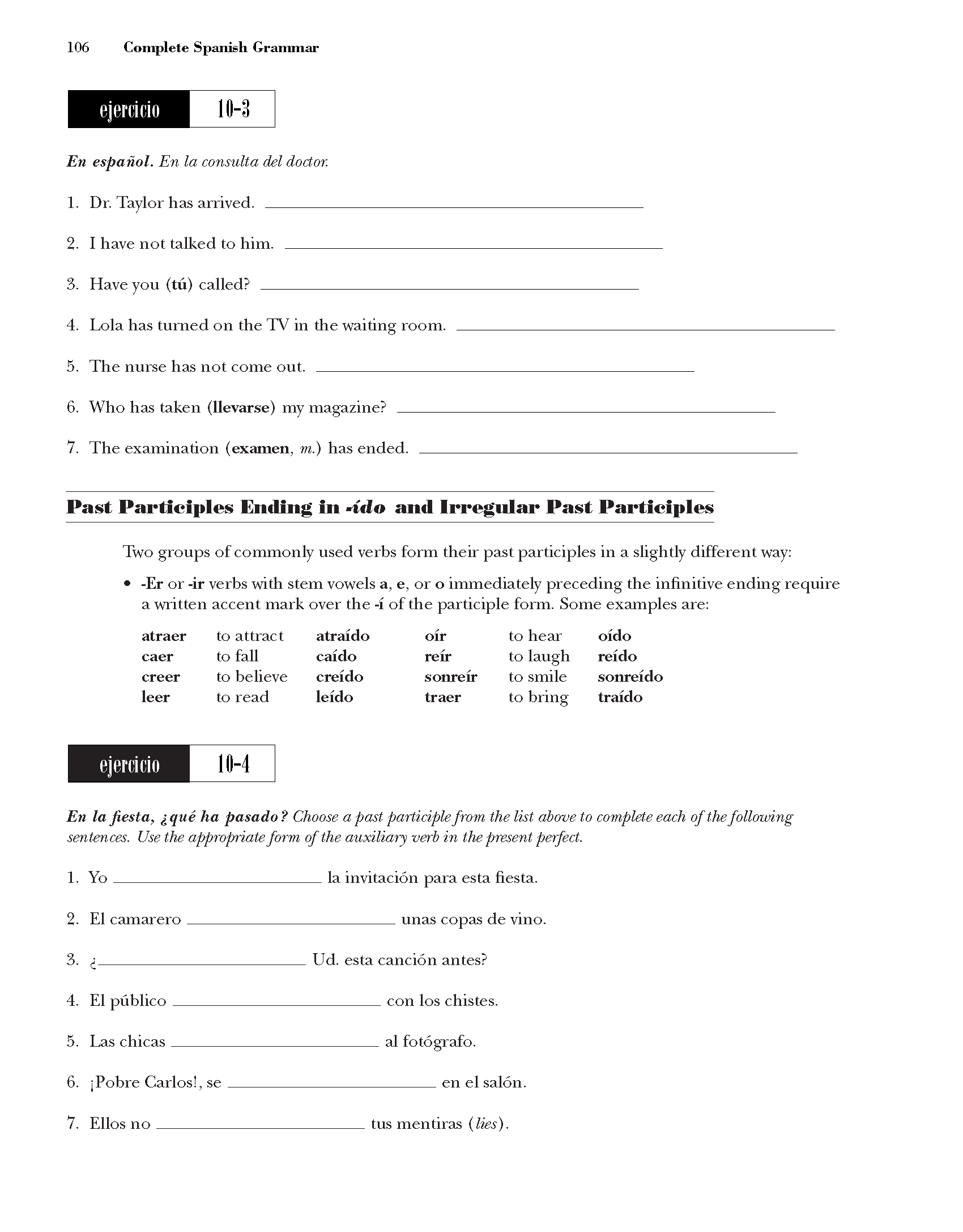CSG117

106 Complete Spanish Grammar
ejercicio
En espańol. En la consulta del doctor.
1. Dr. Taylor has arrived. _
2. I have not talked to him. _
3. Have you (tu) called? _
4. Lola has turned on the TV in the waiting room.
5. The nurse has not come out. _
6. Who has taken (llevarse) my magazine? _
7. The examination (examen, m.) has ended. _
Past Participles Ending in -ido and Irregular Past Participles
Two groups of commonly used verbs form their past participles in a slightly different way:
• -Er or -ir verbs with stem vowels a, e, or o immediately preceding the infinitive ending require a written accent mark over the -i of the participle form. Some examples are:
|
atraer |
to attract |
atraido |
oir |
to hear |
oido |
|
caer |
to fali |
caido |
reir |
to laugh |
reido |
|
creer |
to believe |
creido |
sonreir |
to smile |
sonreido |
|
leer |
to read |
leido |
traer |
to bring |
traido |
10-4
ejercicio
En la fiesta, i ąue ha pasado ? Choose a past participle from the list above to complete each of the following sentences. Use the appropriate form of the auxiliary verb in the present perfect.
1. Yo
2. El camarero
3. a_
la invitación para esta fiesta. _unas copas de vino.
4. El publico
5. Las chicas
6. jPobre Carlos!, se
Ud. esta canción antes?
_eon los chistes.
_al fotógrafo.
_en el salon.
7. Ellos no
tus mentiras (lies).
Wyszukiwarka
Podobne podstrony:
CSG291 280 Complete Spanish Grammarejercicio En espańol. Usa las expresiones que aparecen en la list
CSG297 286 Complete Spanish Grammarejercicio En espańol. Usa la preposición para. Asyou do the exerc
CSG075 64 Complete Spanish Grammarejercicio En espańol. Escribe en espanol la expresión entreparente
CSG113 102 Complete Spanish Grammarejercicio En espańol. Usa el verbo entreparentesis para traducire
CSG291 280 Complete Spanish Grammarejercicio En espańol. Usa las expresiones que aparecen en la list
CSG297 286 Complete Spanish Grammarejercicio En espańol. Usa la preposición para. Asyou do the exerc
CSG101 90 Complete Spanish Grammarejercicio8-9 Y en tu caso... iEs verdadero o falso? _
CSG129 118 Complete Spanish Grammarejercicio Y en tu opinión... iVerdadero o falso? En dżez anos...
więcej podobnych podstron